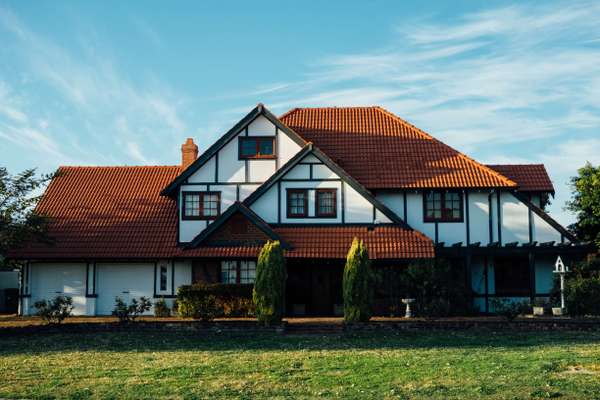Essential Home Maintenance Tips for End of Winter Storms
If you haven’t performed your annual home maintenance checks this winter, don’t think you can avoid them because the season’s almost over. End-of-winter storms are wreaking havoc on homes across the country, and homeowners who don’t maintain their properties to combat storms will likely incur costly repairs and possible health risks.
Heavy wind, rain, ice, and snow can threaten your home’s structural integrity and damage critical systems. Frigid winter temperatures usually force homeowners to rely on indoor heating systems that mail fail if not taken care of properly. Don’t be caught off guard because the weather is fine now. Attend to crucial yearly maintenance as soon as possible to save money, stay safe, and keep peace of mind.
Here are some essential home maintenance tips you can review and take action on to avoid the surprise of damaged property, unsafe conditions, and costly repair bills.
Inspect Carbon Monoxide and Smoke Detectors
Chilly weather often prompts homeowners to fire up the furnace or gather around the fireplace. For those who don’t have properly functioning carbon monoxide and smoke detectors, however, warm days and nights indoors might turn into family health risks. Make sure you test your detectors and change the batteries at least once this season, and keep in mind that carbon monoxide detectors typically last for three to five years, while smoke detectors last for eight to ten years.
Protect Pipes
Don’t neglect your plumbing if you live where water freezes. Protect your pipes from freezing and bursting by taking preventative measures like installing frost-proof spigots or closing interior shut-off valves leading to outdoor faucets. Wrap pipes in unheated areas, such as in basements and attics, with insulation.
Get a Furnace Inspection
If you haven’t had someone inspect your furnace this winter, it’s time to hire a professional. Faulty furnaces can cause fires that put homes and lives at risk. Additionally, older furnaces aren’t as energy efficient as modern ones, so having an expert check your system could lower your heating bill.
Inspect and Sweep Fireplaces and Chimneys
Fireplaces and chimneys cause almost three in ten fires associated with heating systems. This is reason enough to get a winter safety inspection on these systems if you haven’t already. But, consider too that you can get carbon monoxide poisoning from a blocked chimney or flue. Homeowners are also wise to do an annual check themselves for anything flammable set within a three-foot zone of a fireplace opening.
Clear Gutters
Before the next winter storm rolls around, ensure your gutters are clear of leaves, branches, and other debris that can cause water to pool and freeze over, leading to a blockage. If you see icicles hanging from your gutters, this is a good indication that a problem already needs immediate attention. Ice dams in gutters can fall and injure someone or build up to the point where they threaten your home’s exterior.
Check Exhaust Vents
Natural gas appliances like furnaces, water heaters, and fireplaces work overtime during winter storms, all emitting exhaust that must be directed outdoors. It’s important to check your exhaust vents for blockages and ensure all flap traps open correctly. Otherwise, hazardous fumes may enter your home and pose a health hazard. Additionally, blocked vents and traps can be a fire risk if materials trapped inside get too hot and combust.
Maintain Outdoor Utility Equipment
Outdoor utility panels and meters must be clear of ice and snow to function properly and safely. If you haven’t given your utility equipment a winter check, do it before the next storm hits. Remember that you should never use heat to melt ice or snow from a utility panel or meter. Also, avoid hitting the panel and meter if you have to shovel snow around them.
Put an Emergency Kit Together
Harsh and violent winter storms may cause power outages, block exterior doors, and bring on other issues that disrupt your comfort and safety. Be prepared by having a well-stocked emergency kit in your home. Stock your kit with extra food and water (for babies and pets, too), an emergency blanket, foot and hand warmers, medications, bandages, clothing, a flashlight, an ice scraper, a Swiss army knife, and a two-way radio (hand, battery, or solar-powered). As extra safety measures, ensure all household members know your family’s evacuation plan and all pets have an ID tag on their collar.
Do you want to talk to a real estate professional about getting your home ready to sell this winter or in the upcoming months? Contact Better Homes & Gardens Real Estate® for a consultation.
The post Essential Home Maintenance Tips for End of Winter Storms appeared first on Better Homes and Gardens Real Estate Life.
Categories
- All Blogs (105)
- Achievements (2)
- BHGRE Life (39)
- Buyer Guides (10)
- Distinctive Life (17)
- First-Time Buyer Essentials (8)
- First-Time Seller Essentials (6)
- Home Trends (14)
- Lifestyle (24)
- Listings (11)
- Local Events (2)
- Luxury Lifestyle (17)
- Recipes (1)
- Seller Guides (10)
- Travel (4)
- Winter Decor Guides (4)
Recent Posts











